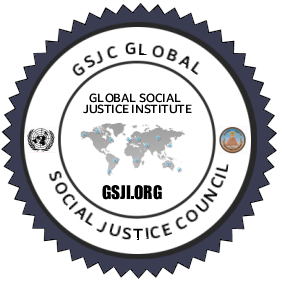GLOBAL SOCIAL JUSTICE INSTITUTE
a. Preventive action and early warning violations thus defusing situations which may lead to humanitarian disasters. The United Nations has already
developed early warning systems to detect potential conflicts. Incorporating human rights into this system by
addressing the root causes of potential conflict will contribute to prevention of humani- tarian and human rights
tragedies and the search for comprehensive solu- tions.
| ||
Virus Justice Italian Freedom Day J23 History of Racism Book-HR Join Commission Ethics Badges Site Map Education Policy Agenda Top Social Justice Issues Anti Slavery Book Truth and Justice Commission USA Ethnic Justice Truth and Justice Commission * Anti Slavery Society - Election Intrigrity George Mentz Colorado Springs Coronavirus Biden Fault Negligence |
Accreditation Bodies: www.GAFM.com * www.GAFM.org * www.CertifiedProjectManager.eu * www.AAFM.org * Certified Project Manager * Certified e-Commerce Consultant * Royal Law Society * Royal Business Society * Royal Business College * Royal Fellows * Royal Economics Academy * Oxford Law School * AAFM * Certified International Project Manager *

